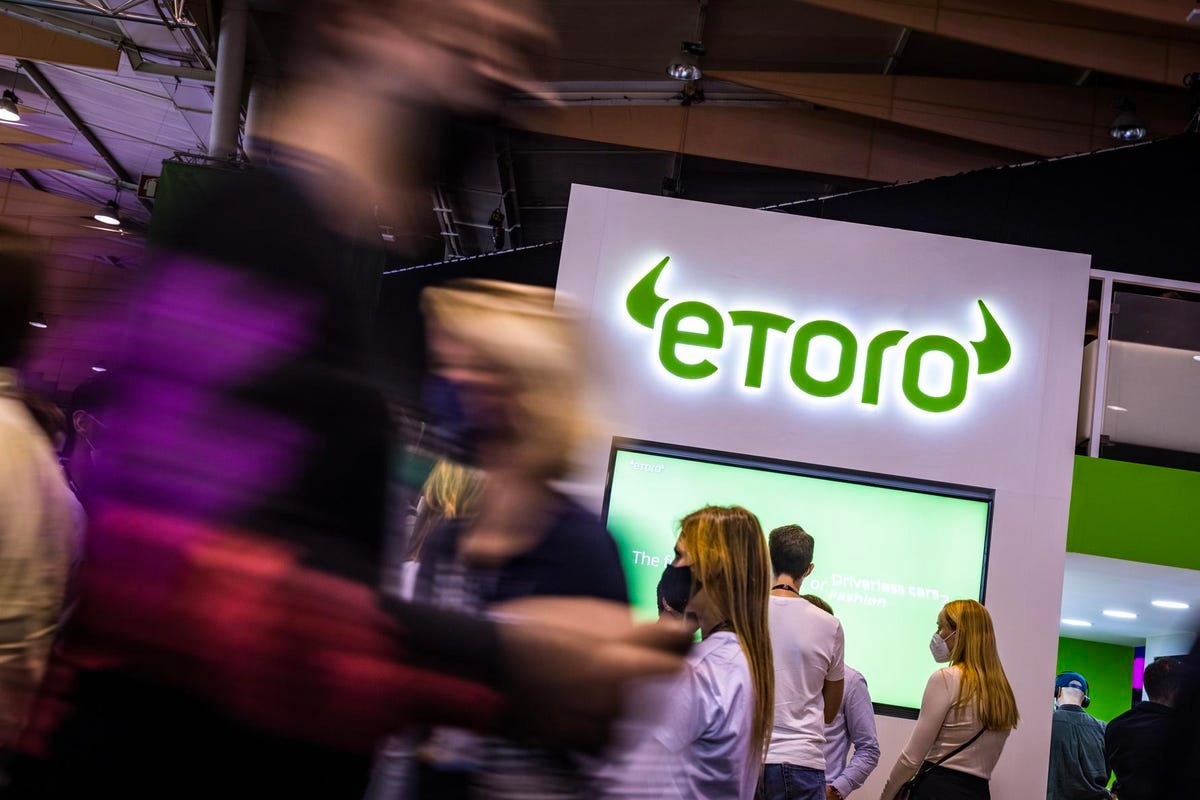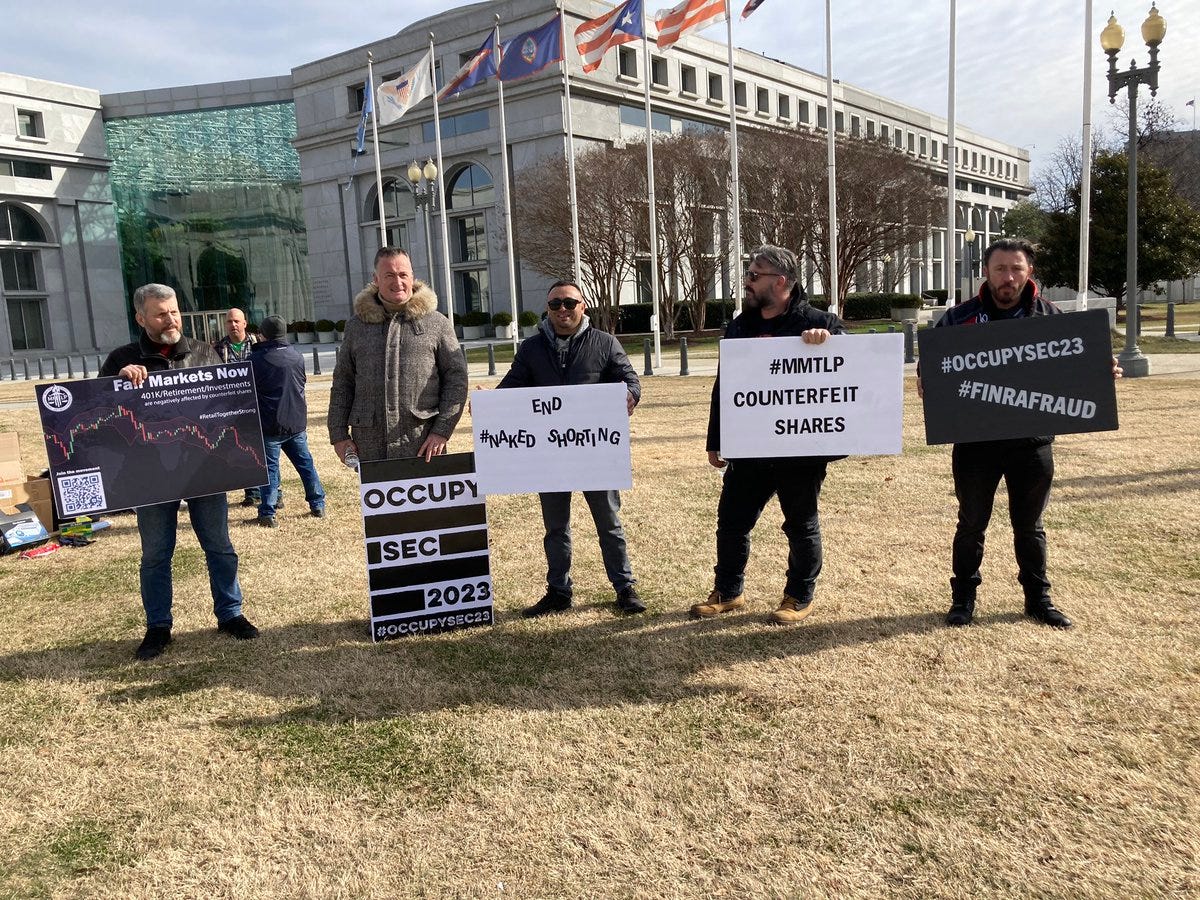Two years since the rise of 'Meme Stocks'
Exploring the lasting impact of retail shareholders
This week marks the second anniversary of the meteoric rise of GameStop’s stock price as a result of Reddit’s r/wallstreetbets community and the cultural adoption of ‘meme stocks’. In commemoration of the anniversary, a group of retail investors organized a ‘education awareness rally’ outside the SEC to end the practice of ‘naked shortselling’ and ‘short selling misconduct’ that became amplified in 2021. With members of our team having experienced the frenzy firsthand working at Reddit, we believe ‘meme stocks’ are on one end of the retail shareholder spectrum driven by speculative financial returns. The far greater opportunity is sustained retail shareholder enthusiasm around a company’s brand, products and experiences (a la Tesla) and part of the mission of The Roundtable Roundup is to highlight companies and communities that are harnessing the power of customer ownership to sustain longterm business growth.
Here’s a roundup on where retail investors stand two years since GameStop:
The Rise Of The Retail Investor (Forbes)
Looking back on 2020’s momentum, we see that meme stocks were a catalyst for continued industry growth. January 2021 saw an estimated 6 million Americans download a trading app as retail brokerages reported unprecedented average daily trade levels.
Despite brutal ups and downs for the market in 2022, net flows from retail investors into the stock market averaged $1.3 billion a day through the first half of the year, according to data from Vanda Research.
Retail investing has the potential to bridge global wealth disparity and bring about financial democracy, as it empowers individuals to take control of their financial future and benefit from the growth of the stock market
eToro Retail Investor Beat: U.S. Investors hold their ground and remain confident amid stock market selloff (Yahoo! Finance)
US retail investors remain resilient despite stock market sell-offs and recession fears, with 65% holding their investments steady.
Despite concerns about inflation, 69% of American investors are confident in their current investments, with a shift in focus towards clean technology as a long-term investment strategy.
The primary goal for investing among US investors is long-term security (52%) followed by retirement and financial independence.
What is ‘naked short selling’ and why has it become a hot topic? (Morning Star)
Short selling is when an investor borrows shares and sells them, hoping to buy them back later at a lower price. It can be risky if the share price rises after the short trade and the investor is facing an unrealized capital loss.
Naked short selling is a form of short selling without actually borrowing shares, which management teams of some microcap stocks (market cap below $100 million) claim to be investigating as illegal.
A short squeeze can occur if many short sellers are caught off guard by a rising stock price and are forced to buy shares to close their short positions, further driving up the stock price. This was a factor in the meme-stock craze of 2021.
Retail investor costs are falling but still weighing on results: ESMA (Investment Executive)
The European Securities and Markets Authority (ESMA) found that retail investment costs have decreased over the last decade.
ESMA warned that costs are still an important consideration for retail investors, and high costs can negatively impact returns.
Actively managed investment funds were found to be more expensive and had lower net performance than passive funds and ETFs.
ESMA found that ESG products outperformed non-ESG products on average, but results varied across asset classes. ESG funds were cheaper overall, except for equity ETFs.
Meme stocks: I bought AMC 'thinking it would be the next Tesla,' retail trader on 2-year anniversary of craze (Yahoo! Finance)
Activity related to meme stocks has tapered off significantly since this phenomenon took off, according to data provided by Vanda Research. Net buys for GameStop stock for example, are a fraction of what they were two years ago, after reaching $87.4 million on Jan. 27, 2021. On that same date, net buys for AMC reached $170.9 million; net buys for AMC these days, in contrast, haven't exceeded the single-digit millions since late August.
The sophistication level of retail investors has increased due to their experience in volatile markets during the pandemic, but some retail investors are feeling the pinch from their losses and have become more cautious.
“I've backed away from meme stocks, and I watch the cults from the sidelines. Each of them has their own leaders, and tin-foil conspiracy theories as to what is happening and how the money they lost due to a bad trade is everyone's fault,” said one Reddit user interviewed for the article.
YouTuber Matt Korhs adds, “I would never say stock frenzies are over. History suggests they appear when you least expect it — They are inherently an unpredictable phenomenon.”






